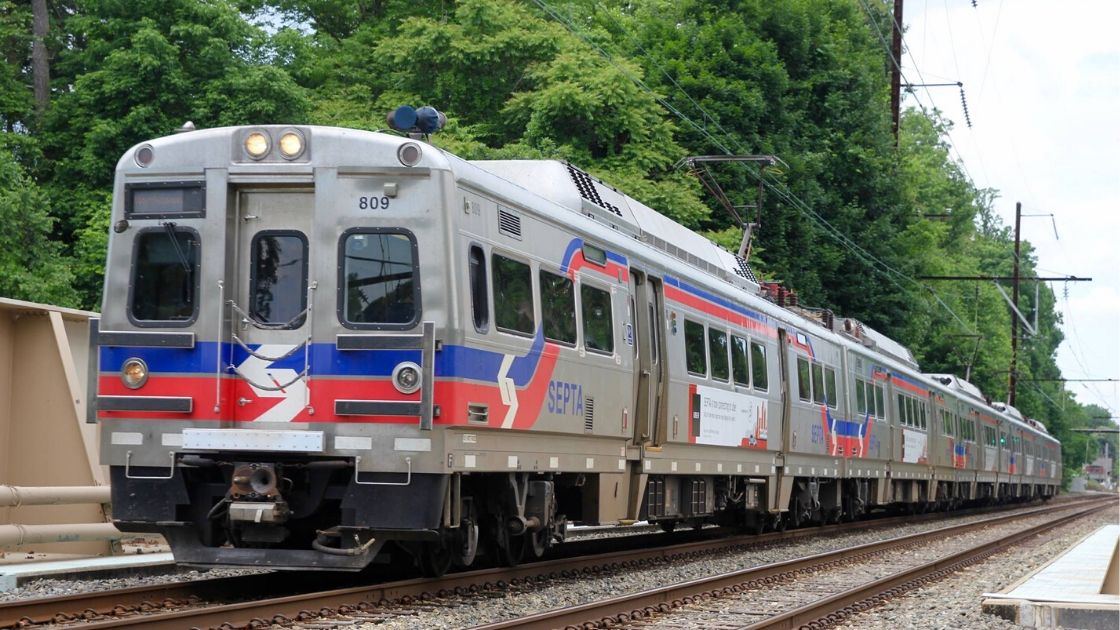On April 10th, SEPTA released a budget proposal that would lead to “45% in service cuts – coupled with major fare increases, workforce reductions and a 9 p.m. curfew for all rail services – to address a massive structural budget deficit during the new fiscal year that starts July 1.”
The staggered specific cuts outlined in the announcement include the “elimination of dozens of bus routes and significant reductions in trips on all rail services,” starting with fall schedules beginning on August 24th. Fares would also go up an average of 21.5% for all riders, effective on September 1st. If the budget issue is not resolved by the New Year, SEPTA will eliminate five Regional Rail lines and implement the 9 p.m. rail curfew. According to an article in The Philadelphia Inquirer, the Manayunk/Norristown line is not one of the Regional Rail lines that could be eliminated.
In its budget announcement, SEPTA pointed to the “critical negotiations in Harrisburg on a statewide transit funding plan introduced in February by Governor Shapiro that would prevent these dire measures from taking effect.”
“These cuts to SEPTA’s service – which would hurt our economy and make it harder for hundreds of thousands of Pennsylvanians to get to work, school, and wherever else they need to go – are completely avoidable,” said Governor Josh Shapiro. “For two years in a row, I have proposed a commonsense plan to support mass transit all across the Commonwealth and last December, I flexed funding to give the legislature more time to come to the table. The state House has passed my proposal three times and plans to do so again next month – it is now squarely on the state Senate to come to the table and pass more funding for mass transit that their own constituents rely on.”
SEPTA also pointed to how service reductions would impact those who do not use SEPTA or only periodically for special events. In addition to increased traffic congestion, if you take a SEPTA service to watch a sporting event, if the 9:00 a.m. curfew is implemented, you would need to find another way home for evening games.
“SEPTA would go from being the economic driver of this city and region to its limiter,” said SEPTA Board Chair and Plymouth Meeting resident Kenneth E. Lawrence Jr. “We are grateful for Governor Shapiro’s proposal and for the continued efforts of legislators from our city and region. Now, we all need to hear from the public. Even if you don’t ride, deep service cuts would impact you – whether it is from increased congestion on area roadways, declining property values or less revenue for local businesses as SEPTA purchases significantly fewer supplies and materials.”
In the announcement, SEPTA lays the blame for the current budget gap on factors such as the “end of federal COVID relief funding and increases in the day-to-day costs of providing service to customers.” According to SEPTA, the federal COVID funds allowed SEPTA to maintain service for essential workers through the pandemic. The transit agency also offered that while ridership has recovered since the pandemic, it has had to deal with “additional costs to address emerging challenges – particularly crime, disorder and the vulnerable population” and inflation on costs such as fuel, power, and supplies.
SEPTA also pointed to how it has cut costs and worked to generate a new stream of revenue to address the budget gap. These measures, including management pay and cuts to third-party consultants, have resulted in savings of $30 million. Other measures include a 7.5% fare increase and the resumption of paid parking at Regional Rail lots. Together, these efforts have helped reduce SEPTA’s budget deficit to a forecasted $213 million for FY2026. Not mentioned in the announcement was SEPTA’s move to redevelop SEPTA properties adjacent to Regional Rail stations, such as Conshohocken and Ambler, with apartments.
“We know how critical service is to our customers and the region, and we have done everything possible to avoid the drastic measures that are proposed in this budget,” said Interim General Manager Scott A. Sauer. “We have made significant progress in cutting costs, growing ridership, improving reliability and delivering on safety and security enhancements. All of that is at risk if we are forced to start dismantling the system.”
In the fall of 2024, Governor Shapiro provided SEPTA with a one-time measure using flexed federal highway funds to fill the current year’s budget gap. SEPTA is required by law to pass a balanced operating budget before the start of the new fiscal year on July 1st. In the announcement, SEPTA acknowledges that its “only options to close such a massive structural deficit are to raise fares and cut costs by eliminating services and reducing the size of its workforce.”
With the budget announcement, SEPTA also released its capital budget proposal for the coming year. According to SEPTA, “Funding constraints and inflation are impacting SEPTA’s ability to move forward on some improvement efforts. Under the proposal, SEPTA would close the funding gap by deferring dozens of projects and other capital-funded initiatives, which will delaying achievement of previous commitments for key priorities like station accessibility.”
SEPTA will hold four public hearings about the Proposed Fiscal Year 2026 Operating Budget at SEPTA Headquarters on May 19 (11 a.m. and 5 p.m.) and May 20 (10 a.m. and 4 p.m.). The Capital Budget hearings will be held on May 21 at 10 a.m. and 4 p.m.
In addition to commenting in-person, the public can submit comments by email at operatingbudget@septa.org and capbudget@septa.org, voicemail by calling (215) 580-7772 for Operating Budget and (215) 580-7771 for Capital Budget, or U.S. mail (SEPTA Budgets, 1234 Market Street, 9th Floor, Philadelphia, PA 19107. Comments must be submitted by May 28.
Photo: SEPTA

